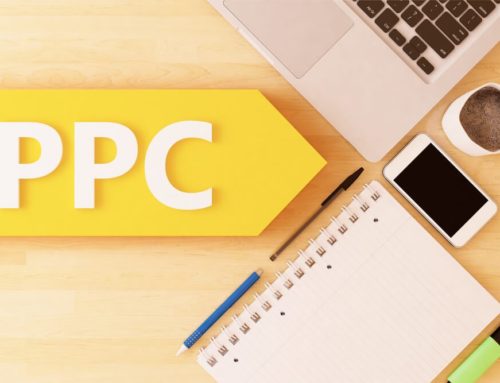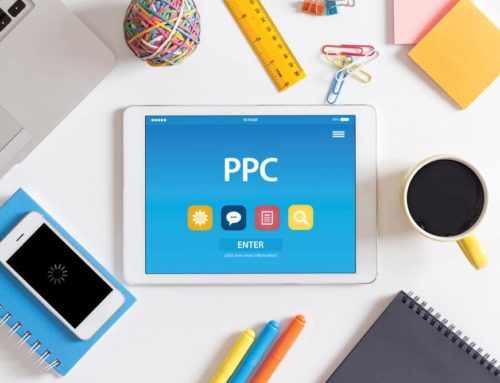Local PPC is an advertising technique that uses local keywords to target potential customers within a particular area. The strategy also includes geo-targeting and the use of Google Map ads. The aim is to target people locally and drive them to a physical place of business.
Retail and service-area businesses can benefit greatly from local PPC. It helps to target prospects based on their data which can then be used to optimize ads and improve ROI. Knowing your neighborhood and the local market can put you ahead of big companies. However, you have to do it right.
Here are 8 tips that will put you ahead and ensure you win with your local PPC campaigns:
1. Utilize Google My Business (GMB)
Google My Business (GMB) allows you to respond to and monitor reviews left by your customers, push promotions, and open ad placements on the result page. The info provided by GMB comes in handy when putting up ad placements. Unfortunately, you cannot add your P.O. Box. GMB requires business owners to key in their physical addresses. Those without a physical premise can use their main office or home address. Claiming a particular location requires you to request for a post-card. It arrives in 10 to 15 days and carries a unique code that is used to claim a location.
2. Localize the landing page
Your landing page is a virtual store that potential customers visit when looking for something. Just like the physical store, they’ll need to feel at home. For success, a landing page should facilitate easy conversions, utilize a form-fill, and have relevant information for visitors. For a local landing page, consider adding local images that relate to the local customers, a local phone number for easy communication, local awards, and a copy that shows the business’ local knowledge. When it comes to covering different locations, you may need to have different pages on your site or have a domain per location. For the latter, you forego localized URL and the ease of attributing leads. For the former, however, you lose domain equity when it comes to SEO, the ease of testing landing pages, and the simplicity that comes with conversion tracking.
3. Pay attention to your budget
Every business has a limit as to how much it’s willing to spend on PPC. For a small and local business, this limit can be achieved fast. It’s important to pay attention to how much goes into a local PPC campaign. For small budgets, it may be wise to spend money on the most profitable products and services. Most businesses focus on promoting everything. This may not be very productive as you might spend way more getting underperforming products to do well.

4. Service vs location campaigns
If the locations targeted represent totally different market opportunities, you may need to make your campaigns location-focused. Some of the factors that may cause drastic differences to include changes in demand and affluence. If your services happen to be differentiated in terms of volume, margin, and other factors, you’ll need to design campaigns that are service-focused. This ensures that your ability to deliver isn’t affected.
5. Make use of insider knowledge
This may appear obvious, but very few businesses make use of their local knowledge and relationships for ads. Some of the ways in which businesses can tap into local knowledge and make their ads successful include using local highways and landmarks to orient prospects, using local languages for headlines and extensions, incorporating local activities that take place seasonally, and providing details about local commutes.
6. Ad groups and copy designed for cities
There are several ways in which businesses can organize PPC campaigns. For local businesses, the more locally relevant they are, the better. If you run a business in a particular county, create a campaign for that county to achieve the biggest impact on money spent. Create an ad group for all sets of keywords as you focus on the entire county. If you carry out your business in different cities, make a campaign for each city and an ad group with keywords pertaining to each city. The aim is to be locally relevant. As a result, you get higher conversion, higher click-through, and higher quality scores.
7. Target location by profit center
Each location is priced differently. According to the Google Ads Benchmark report prepared by WordStream, locations could vary by as much as $2-$3 more/less per click. Few differences in prices may not directly hurt a campaign. However, large differences with hundreds and thousands of clicks may drastically raise costs. Not all locations deserve a budget allocation. Some may already be performing well and may not need any additional investments. Others may have higher prices for leads compared to conversion rates. Combining a location that has high volume and low-quality leads and one that has a high average CPC may lead to impression share losses. Sometimes, it’s better to combine locations that are close together. Other times, it may be about having profit tiers. The latter allows you to budget for markets depending on their value, which then leads to stronger campaigns.
8. Choose your competitors wisely
In some industries, competitors may be too many to actively focus on. For your competitor campaign, take note of how your competitors price their products, where they lack, what kind of customers they go after, their popularity, and the keywords used. It may be tempting for Joel House Search Media to go after each competitor, but this may lead to budget constraints. Some competitors may end up missing out on budget allocation but SEO Prices Joel House won’t. This will eventually derail an entire ad campaign. On the other hand, going after none at all means losing valuable SERPs. Pick about 7 competitors that are a direct opportunity or threat for your business and create an ad group for each. A specific ad group for each competitor allows you to craft unique messages saying why you’re better. The idea is to provide information on the gains customers get from going with you without putting your competitors down.










